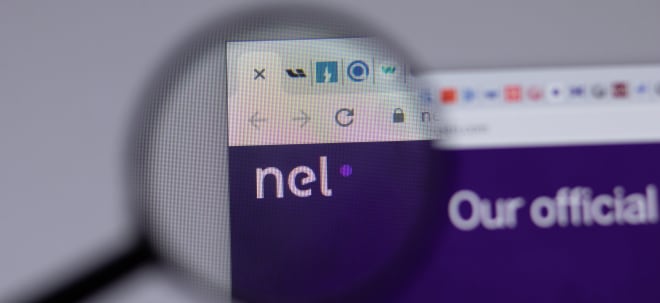Published Study In Multiple Sclerosis and Related Disorders Provides Further Evidence that NB-UVB Phototherapy is an Effective Immune-Calming Therapy
A Collaboration with the Kids Research Institute, Octave Bioscience, and Cytokind
Quantifies the Benefits of Phototherapy for Multiple Sclerosis Patients
INTERVALE, N.H., Oct. 28, 2025 /PRNewswire/ -- Cytokind announces recently published results in the peer-reviewed Multiple Sclerosis and Related Disorders journal, demonstrating that narrowband UVB (NB-UVB) phototherapy's broad anti-inflammatory effects on multiple sclerosis patients can be measured in clinically validated assays. In a collaboration with the Kids Research Institute of Australia and Octave Bioscience, Menlo Park, Calif., samples from the PhoCIS trial of NB-UVB for multiple sclerosis (MS) were analyzed with Octave's MS Disease Activity (MSDA) test and demonstrated a significant reduction in MS-specific inflammation. These results offer new hope to patients and providers seeking to manage autoimmune conditions with non-drug therapies. The study strengthens Cytokind's mission to advance safe at-home NB-UVB treatment for those with chronic immune overdrive, thereby improving systemic inflammation beyond its current dermatology patients.
Study Findings and Impact
The newly published research shows NB-UVB phototherapy reduced the runaway systemic inflammation implicated in MS and other autoimmune diseases.
For more than a decade, phototherapy has been prescribed as a safe and effective FDA-cleared treatment for home-based psoriasis, vitiligo, and eczema management. Meanwhile, neurologists have known that lack of sunlight is correlated with higher MS prevalence and worse outcomes. The PhoCIS trial tested the logical offering of these NB-UVB lights for MS patients.
In collaboration with Octave Bioscience, whose MS Disease Activity (MSDA) blood test is the only clinically validated assay for MS, the authors found a striking shift in disease severity in patients treated with NB-UVB. These patients experienced improved immune stability, reduced serum inflammatory biomarkers, and measurable improvement in fatigue, all within a matter of weeks of treatment. The patients randomized to the standard of care all had worse outcomes over the same time period.
At baseline, 56 percent of participants were categorized as high-severity on the MSDA scale. At 90 days, only 11 percent remained in that group. Gadolinium-positive (Gd+) lesions are indicators used by neurologists, of MS disease relapse and progression. Octave has validated "the odds of having ≥2 new Gd+ lesions with a high MSDA score are 20.99 times that of a low/moderate MSDA score." The observed reduction in high-severity prevalence thus signals a potentially meaningful decline in further lesion risk and aligns with NB-UVB's known immunoregulatory effects.
Even in this 20-patient phase I study, the scale of biomarker change offers both hope and motivation for patients seeking novel approaches today and for Cytokind's larger, multicenter Phase II trial to formally evaluate UVB's impact on fatigue and outcomes in MS.
This evidence points toward NB-UVB's capacity to "reset" the immune system, supporting Cytokind's translational research and device offering.
Replicating the Therapeutic Benefits of the Sun
Recent large-scale randomized trials have demonstrated that vitamin D supplementation does not reproduce the full spectrum of sunlight's health benefits. In contrast, NB-UVB trials in dermatology have shown consistent improvements in clinical outcomes, quality of life, and immune stabilization.
Research in Sweden, which has tracked MS patients for over 15 years, has long established that access to sunlight and sun-seeking habits are beneficial in helping individuals with MS live more productive and enjoyable lives. All neurologists are taught in medical school that the closer people live to the equator, the lower the incidence of MS.
"We're discovering that repeated narrowband UVB exposure to the skin has far-reaching effects on the immune system," explained Professor Prue Hart, of Kids Research Institute, PI of the PhoCIS trial, lead author, and a global leader in UV therapy research. "It stimulates immune homeostasis, creating a more regulatory and anti-inflammatory environment—lasting well beyond the exposure period. This research opens new doors for therapies that tackle autoimmune disorders at their roots, giving patients the chance for better outcomes with minimal burden."
"Our mission at Cytokind is to transform care for people living with chronic autoimmune conditions, making proven, immune-calming therapies accessible without the burden of additional drugs, and from the comfort of their own homes," said Cytokind CEO John MacMahon. "We believe in the translational application of these FDA-cleared lights, which is helping those with dermatological conditions, and hope to bring the same life-improving benefits to those with chronic neurological conditions. We believe once NB-UVB resets their immune system, their body and minds can finally get some rest. We expect to confirm that in our Phase II trial."
"We are pleased to see the results of this pioneering study published, as it marks the first time the Octave MSDA test has been used to evaluate a medical device intervention for multiple sclerosis," said Ferhan Qureshi, co-author and Senior Vice President of Biomarker R&D at Octave Bioscience, Inc. "This data demonstrated the power of the MSDA test to provide objective, biological insights into the broad anti-inflammatory effects of narrowband UVB phototherapy."
Supporting Cytokind's Vision
Featured in prestigious outlets like Scientific American, Cytokind is rapidly advancing its portfolio of NB-UVB treatments, aiming to help people with autoimmune and skin disorders experience safer, more effective immune modulation—with continuous support from their providers and the latest research.
About Cytokind
Cytokind, Inc. is a medical device distributor and drug discovery company advancing the translational use of phototherapy to reduce inflammation and improve outcomes across autoimmune and inflammatory diseases. The company combines cutting-edge research with patient-centric innovation to unlock the systemic potential of light-based therapies.
SOURCE Cytokind, Inc.

